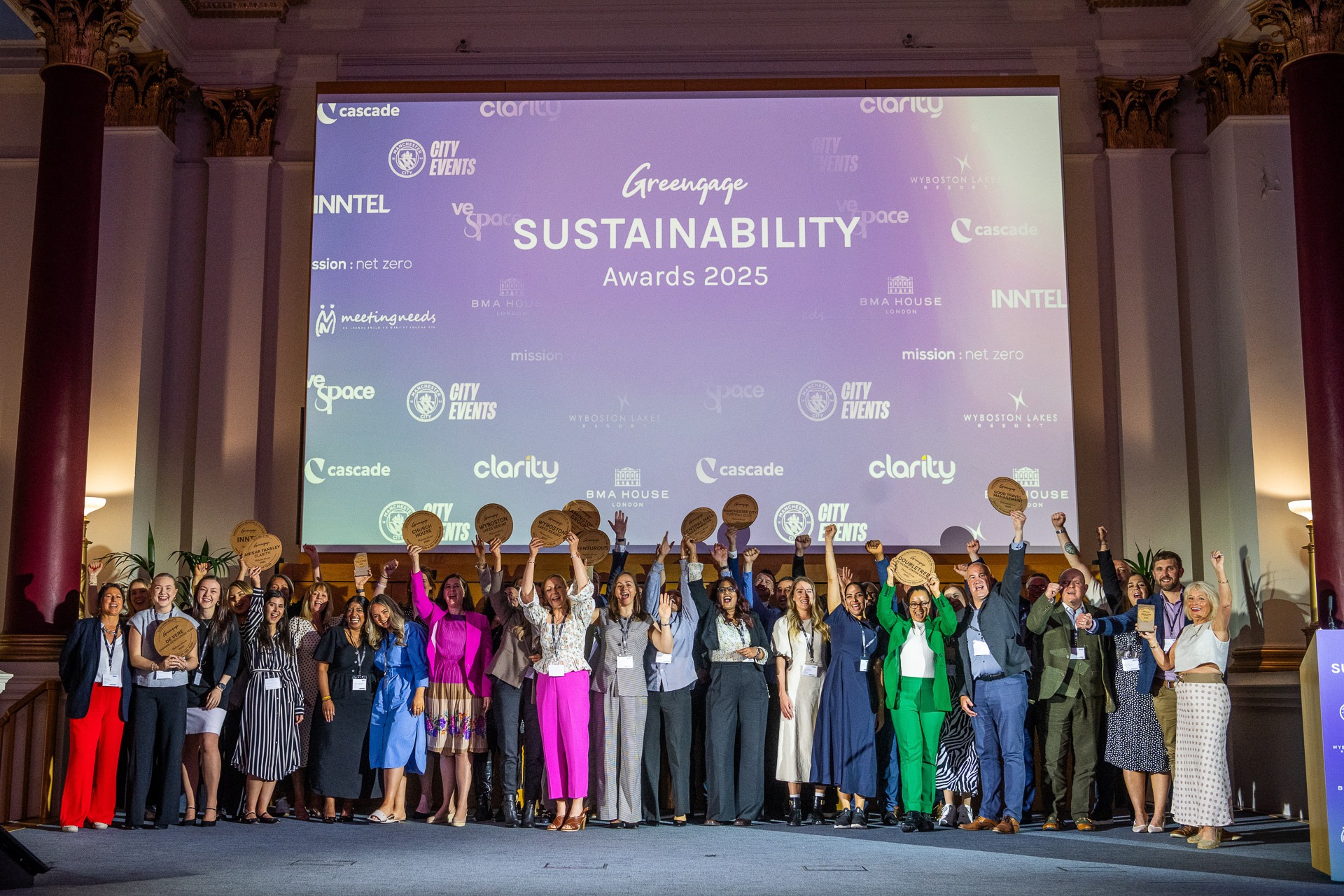🌿 A celebration of sustainability, community, and innovation in a historic London setting. 🌿
BMA House proudly played host to the 2025 Greengage Sustainability Awards in May 2025, a landmark occasion celebrating exceptional contributions to sustainable business travel, meetings, and events. Organised by Greengage Solutions, the awards brought together over 160 purpose-driven professionals for a vibrant afternoon of recognition, connection, and impact.
Selected as host for its ECOsmart Platinum certification, strong sustainability ethos, and central London location, BMA House embodied the very values at the heart of the Greengage community. We not only delivered on logistics, capacity, and accessibility, but also stood out as a headline sponsor and true partner in the awards’ evolution from a conference-style gathering to a high-profile, purpose-driven celebration.
“BMA House could not have been more helpful throughout our planning process, working closely with us on all requirements and truly exceeding our expectations for our sustainability awards ceremony,” said Andrew Perolls, CEO and Founder, Greengage Solutions.
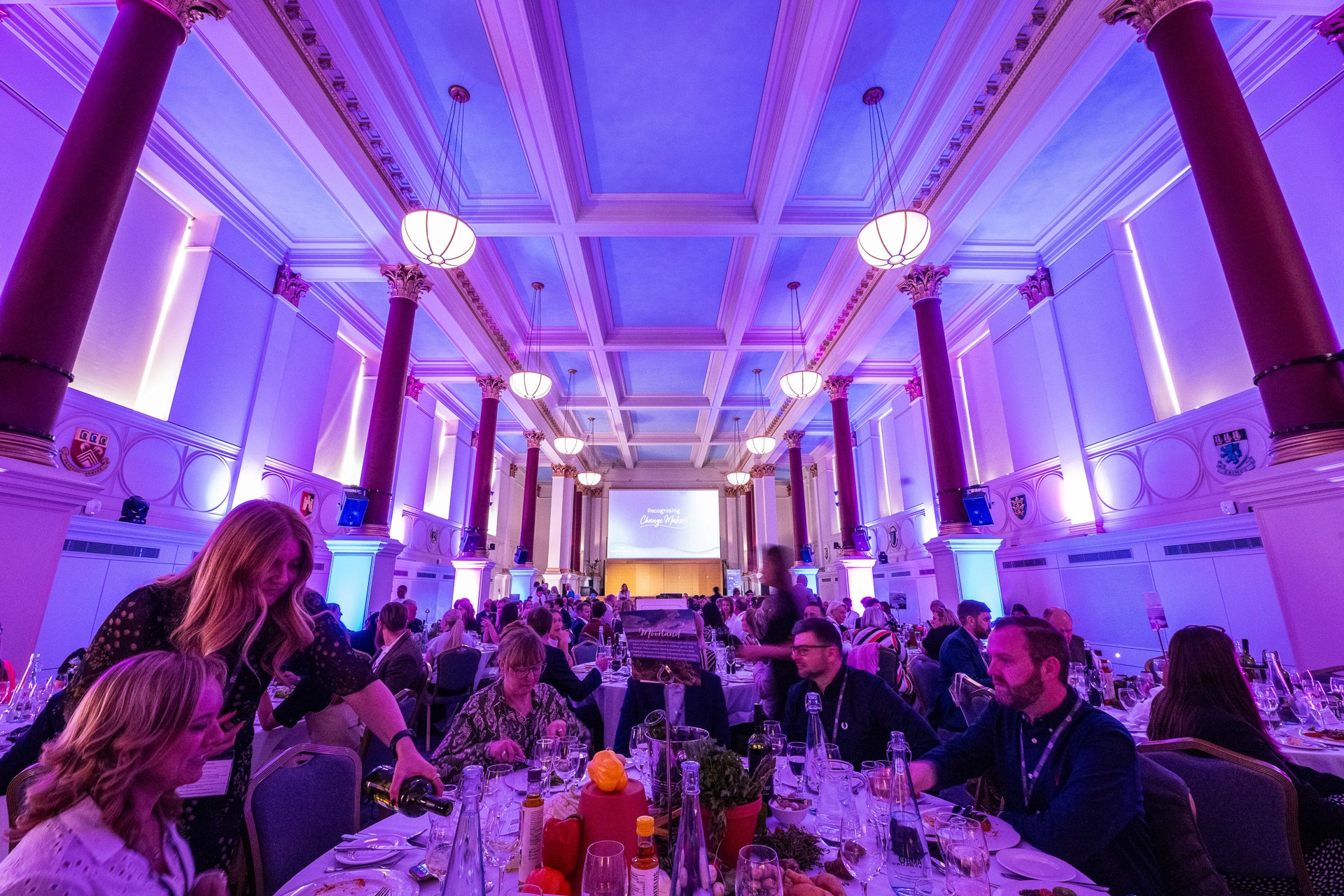
A shared vision
Greengage’s commitment to reducing environmental impact was evident throughout the event, and mirrored in every detail by BMA House and our team. From the moment guests arrived, they were immersed in an atmosphere where sustainability wasn’t an afterthought but the foundation. Accessible by public transport and centrally located to minimise travel emissions, we also promoted a Clean Air Walking Route and supported attendees in making low-impact travel choices.
The event menu, created in partnership with Company of Cooks, was entirely plant-based. Each dish was curated with traceable sourcing, from locally grown asparagus and shallots to zero air-mile heritage tomatoes and ethically shipped tropical ingredients. Even post-event coffee was Fair Trade certified, reinforcing a 360-degree commitment to sustainability.
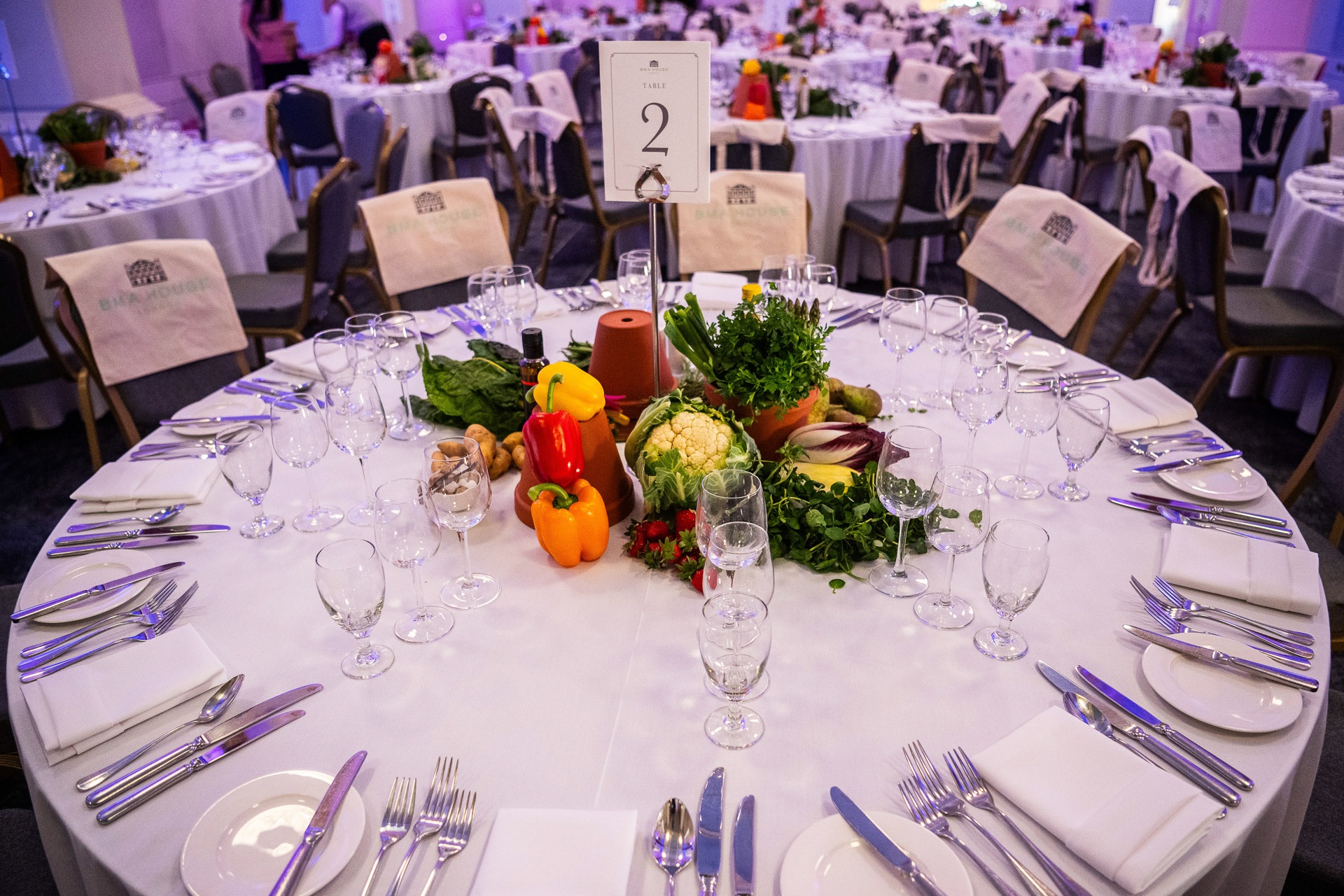
Creativity meets conscience
Our team at BMA House went beyond typical hosting duties by co-creating experiences that elevated the event’s impact and storytelling. In place of traditional floral centrepieces, we sponsored reusable jute bags and table displays of locally grown vegetables, allowing guests to take fresh produce home, further reinforcing the principles of a circular economy. The idea was not only applauded during the ceremony but also became a talking point across social media, demonstrating how thoughtful event design can extend sustainability beyond the venue.
“What set them apart was their incredible commitment to our vision, even sponsoring our table centrepieces of locally grown vegetables for attendees to take home, which were a massive hit,” added Andrew Perolls.
Every element of the awards, from cork-based plaques and name badges to reused pop-up banners and signage, was thoughtfully considered to reduce waste and environmental footprint. Even the menus were digital, further reducing waste through lack of printing materials.
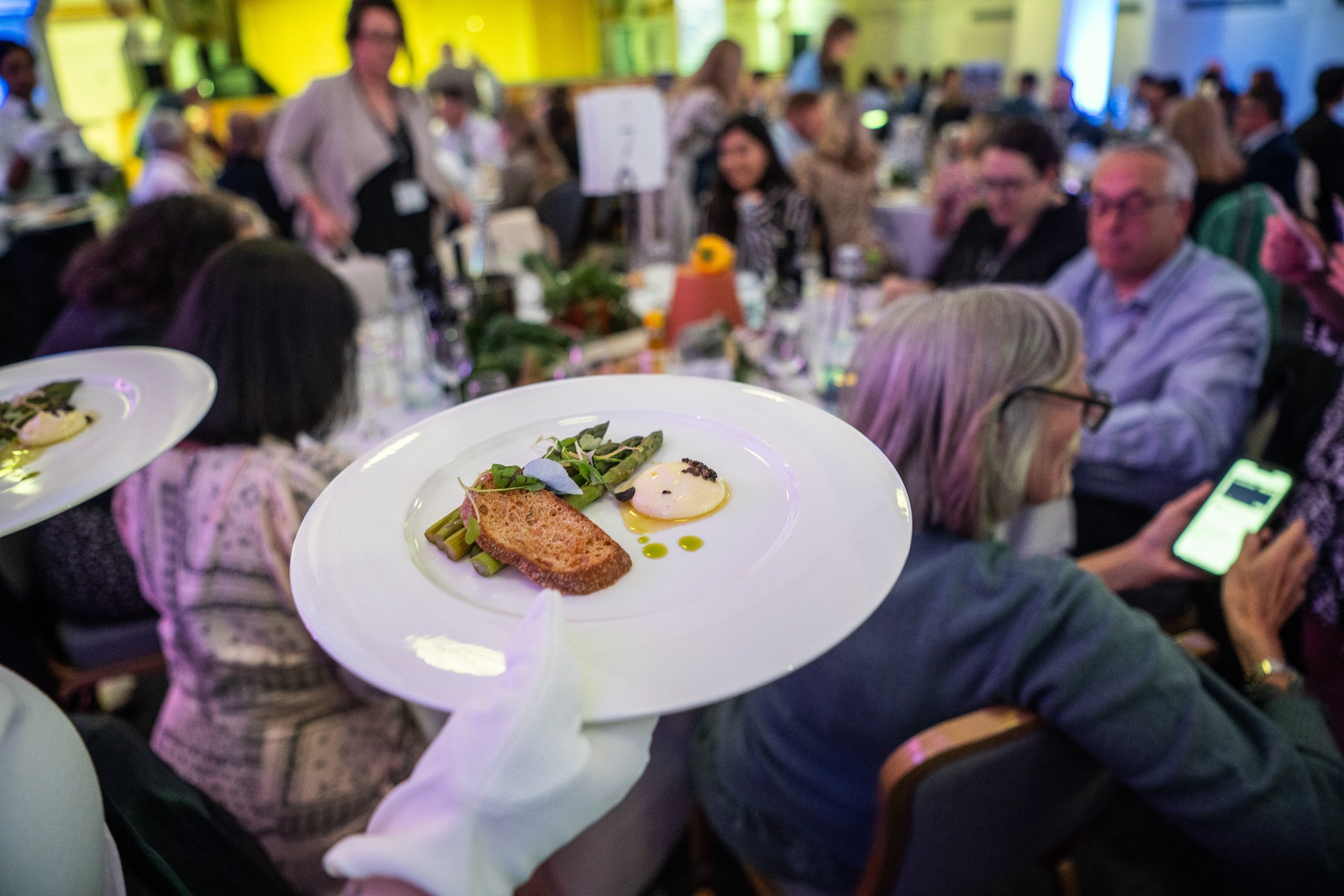
Measurement and meaningful outcomes
Both BMA House and Greengage prioritised measuring the event’s sustainability metrics, resulting in an extremely low Scope 3 emissions profile. Minimal driving, local sourcing, and a wholly plant-based menu resulted in an event aligned with best-in-class sustainability goals.
We also supported social media promotion and ticketing, working proactively with the Greengage team to drive awareness and engagement. From launch to live day, we became an extension of the event’s team, helping build momentum and excitement that contributed to a sold-out event and a capacity crowd of engaged attendees.
In all, the event created an incredibly low 1.31tonnes of CO2e, a remarkable low score for an event of this size and delegate numbers.
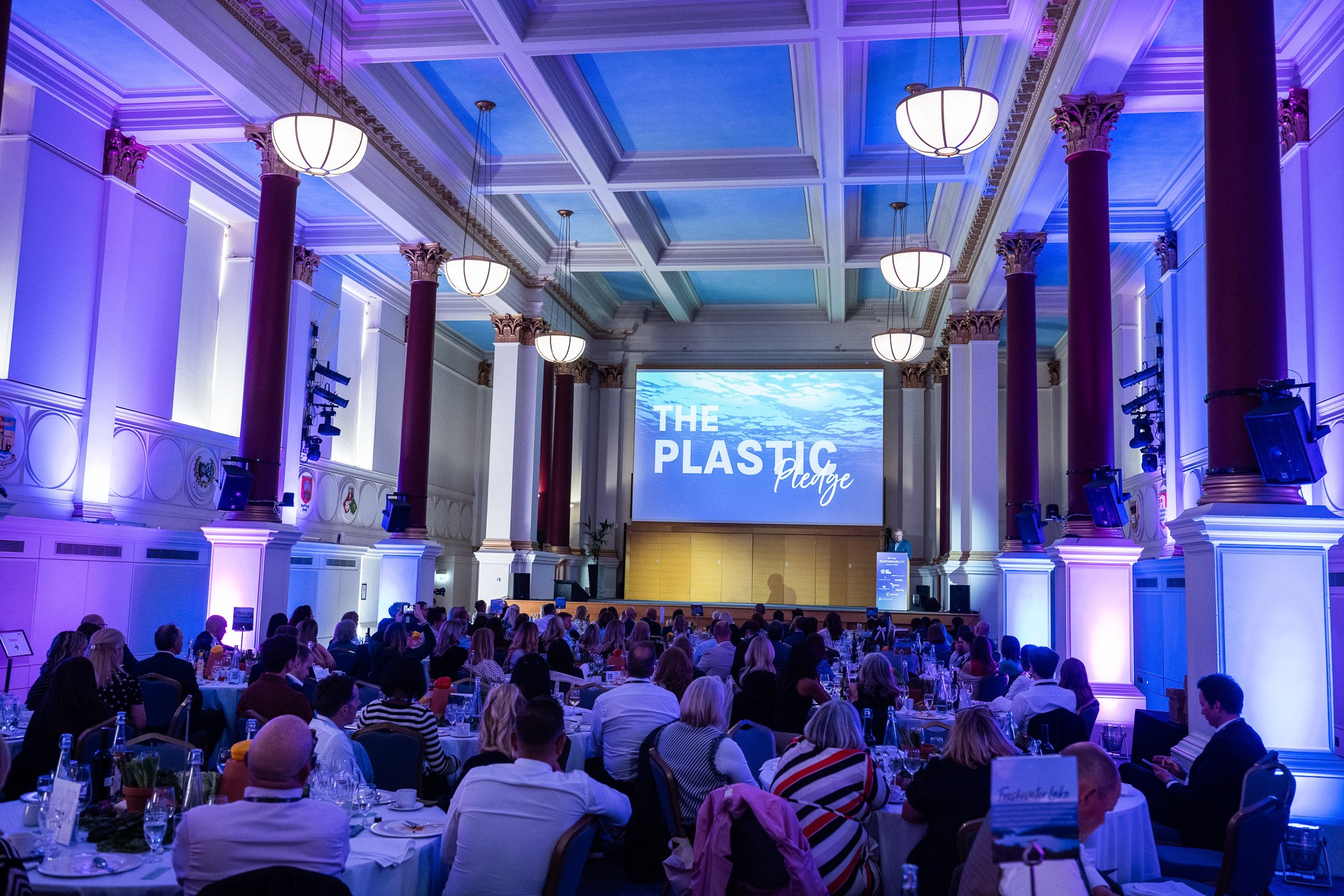
A community, not a competition
One of the most incredible aspects of the Greengage Awards was the community spirit filling our Great Hall. With 18 awards distributed, the room remained energised and attentive throughout. Rather than competition, guests were united by a shared vision for better business, cheering one another’s successes and soaking in insights, particularly from keynote speaker Chris Desai, Founder of VAYYU®, The VAYYU Foundation®, UOCEAN® 2050, UEARTH® 2050, and UHUMANS® 2050, who shared thought-provoking views on plastic waste.
As a venue, we also celebrated success of our own, receiving Gold in the ‘Best Meeting/Event Venue – Sustainability Initiative’ category, an accolade that underscores our leadership in sustainable hospitality and events.
“The setting perfectly complemented our message and values. But beyond the beautiful space itself, it was the outstanding team that made the experience truly exceptional,” concludes Andrew Perolls.

Legacy and future
The Greengage Sustainability Awards 2025 proved that sustainability and celebration can thrive side-by-side. With outstanding feedback, unforgettable experiences, and real change catalysed by every conversation, the event left more than a memory. With future collaboration already in discussion, BMA House remains a proud partner of Greengage, driven by shared purpose and a belief that sustainable events are not just possible, they’re essential.
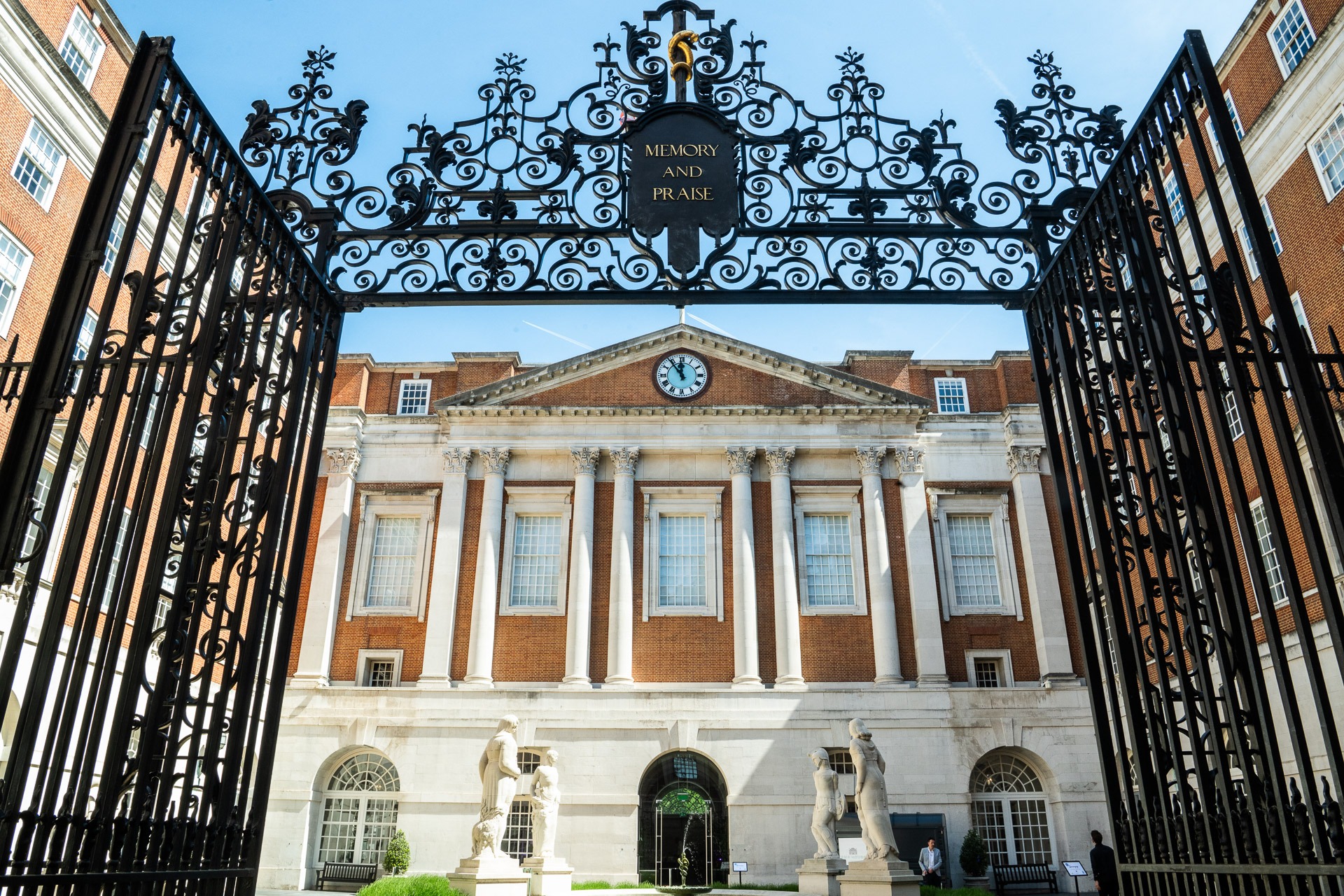
Further Client & Attendee Testimonials
Greengage Sustainability Awards feedback
“Wow, wow, wow. HUGE thank you and congratulations on delivering such a stunning event on Friday. I was absolutely blown away by your attention to the finest detail and the exceptional quality of the menu. Absolutely loved it, my two colleagues were blown away too. Thank you so, so much…..have a wonderful day!”
Tony Shotton, Deputy Head of Venue Sales, Manchester City Football Club
“Everyone is raving about BMA House”
Lucy Mitchell, Greengage
You and your team of colleagues at BMA House did an amazing job! 🤩”
Keith Butler, Director of Sales at Radisson Hotel Group
“Wow. The Greengage Sustainability Awards on Friday were something else.
I can’t remember the last time I felt this proud.
Honestly, I am still absolutely buzzing about Friday. I can’t get over what a great day it was and again I want to stress that the team at BMA House were amazing. The venue was everything and more and it looked just beautiful. Sasha was just exceptional and took all the worries out of everything.”
Sam Cande, Greengage Solutions
“Congratulations on your Eco Smart Award on Friday and also the food was incredible!”
Fiona Plumpton, London & Partners





